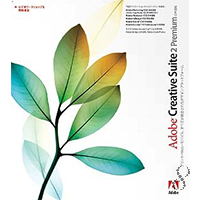747 Troubleshooting
Frequent 747 Opening Issues
Missing Adobe Creative Suite
When trying to open your 747 file, you get the error "Can't Open 747 File Type". Usually, this is because you do not have Adobe Creative Suite for %%os%% installed. The OS won't know what to do with your 747 file, so double-clicking to load the file doesn't work.
Tip: If you have another software that you know opens 747 files, you can select it by hitting the "Show Apps" button.
Adobe Creative Suite is Out-of-Date
It is possible that your version of Adobe Creative Suite isn't able to open your CS6 Extension Manager Report file due to incompatibility. Installing the latest version of Adobe Creative Suite from Adobe Systems Incorporated is recommended. This issue mainly occurs when your CS6 Extension Manager Report file was created by a newer version of Adobe Creative Suite than you have on your PC.
Tip: Right-clicking on your 747, then clicking "Properties" (Windows) or "Get Info" (Mac), can provide clues about your file version.
Regardless, most of the 747 file opening problems relate to not having the right version of Adobe Creative Suite installed.
Associated Difficulties Loading 747 Files
Assuming you have the right Adobe Creative Suite version installed, other problems can prevent you from opening 747 files. There can be external issues inside of %%os%% that are causing these errors when opening 747s. Problems unrelated to software:
- Corrupt Windows Registry file path references for 747
- Mistaken removal of the Windows registry 747 description
- Invalid installation of a 747-associated program (eg. Adobe Creative Suite)
- 747 file corruption
- Malware-tainted 747 file can't be opened
- Device drivers for 747-related hardware are out-of-date
- Windows has inadequate resources to open your CS6 Extension Manager Report file
Quiz: Which file extension is a type of raster image?

That's Correct!
TIFF files, or Tagged Image File Format, is a considered a raster image file. They are very popular with the publishing industry because of their ability to be compressed using lossless compression (maintaining high quality).
Close, but not quite...
TIFF files, or Tagged Image File Format, is a considered a raster image file. They are very popular with the publishing industry because of their ability to be compressed using lossless compression (maintaining high quality).





















